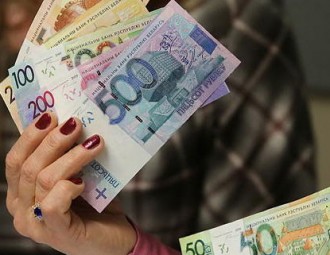With the 3rd denomination in 22 years, Belarus leads by their number among former Soviet republics

It is the third time when Belarus has denominated its national currency after the collapse of the Soviet Union.
The first redenomination of the Belarusian ruble was a 10-fold one and took place on August 20, 1994. A larger redenomination was held on January 1, 2000. The currency then was denominated 1,000 times. The recent redenomination (10,000:1) started on July 1, 2016.
As a result of the three redenominations, the nominal cost of the Belarusian currency has decreased by 100 million times, Belsat informs.
Six countries of the former USSR (Azerbaijan, Tajikistan, Turkmenistan, Latvia, Lithuania and Estonia) held redenominations twice.
The second redenomination in the Baltic countries were due to their changing over to the euro. In Latvia, this process was actually reverse, as their lat was 1.42 times more expensive than the single European currency.
One redenomination occurred in Kyrgyzstan, Kazakhstan, Armenia, Moldova, Uzbekistan, Georgia, Ukraine and Russia.
-
03.01
-
07.10
-
22.09
-
17.08
-
12.08
-
30.09










































